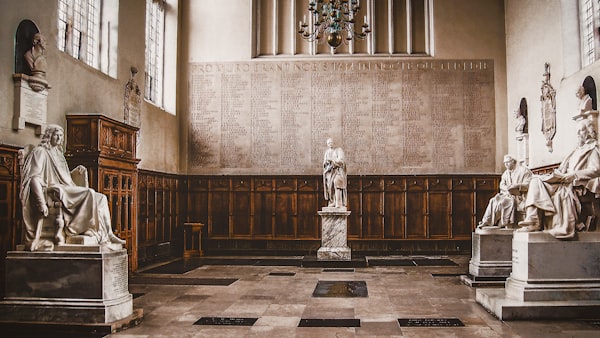Film Discussion 05: The Wizard of Oz
At first I was a little worried that we might not have enough to talk about in this film because it was "simpler," but I think I had too little faith in this movie! We covered a lot, including Dorothy's desire for and journey home, why each character was seeking what they thought they lacked, and how each character related to each other in the group. We even compared Dorothy to the Wizard!
Thanks to Josh and Alishia for joining and helping us dig deeper into this film. It was a lot of fun, and now I'm really excited to see what they do with this new movie and how it fits into the world of Oz.
Below are the show notes. I've included some interesting quotes related to some of the ideas we touched on as well as some quick clips of how this movie has influenced others. Thanks for watching!
Show Notes
1. Wreck-It Ralph's Homage to the Witch's Castlehttp://www.youtube.com/watch?v=Lygv5JE9UDg
As you can see, even movies as recent as a few months ago are still inspired by this film!
2. "The Wizard of Oz" by Salman Rushdie in Writers at the Movies: Twenty-Six Contemporary Authors Celebrate Twenty-Six Memorable Movies (ed. Jim Shepard)
...The Wizard of Oz is a film whose driving force is the inadequacy of adults, even of good adults; a film that shows us how the weakness of grownups forces children to take control of their own destinies, and so, ironically, grow up themselves. The journey from Kansas to Oz is a rite of passage from a world in which Dorothy's parent substitutes, Auntie Em and Uncle Henry, are powerless to help her save her dog, Toto, from the marauding Miss Gulch into a world where the people are her own size and she is never, ever treated as a child, but a heroine. (p. 202)
Perhaps it is because [Scarecrow, Tin Man, and Lion] are hollow that our imagination can enter them and fill them up so easily. That is to say, it is their anti-heroism, their apparent lack of Great Qualities, that makes them our size, or even smaller, so that we can stand among them as equals, like Dorothy among the Munchkins. Gradually, however, we discover that...they embody one of the film's "messages"—that we already possess what we seek most fervently. The Scarecrow regularly comes up with bright ideas, which he offers with self-deprecating disclaimers. The Tin Man can weep with grief long before the Wizard gives him a heart. And Dorothy's capture by the Witch brings out the Lion's courage, even though he pleads with his friend's to "talk me out of it." For this message to have its full impact, however, it is necessary that we learn the futility of looking for solutions outside. We must learn about one more hollow man: the Wizard of Oz himself. Just as the Tinsmith was a flawed maker of tin men...so too must our beliefs in wizards perish, so that we may believe in ourselves. (p. 222)3. The Writer's Journey: Mythic Structure for Writers by Christopher Vogler
The true all-healing Elixir is the achievement of inner change, but the scene acknowledges that it's important to get outer recognition as well. As a surrogate parent for the lot of them, the Wizard is granting them the ultimate boon of a father's approval, a Reward that few people get. Heart, brains, and courage are inside them and always were, but the physical objects serve as a reminder. (p. 183)
Dorothy's declaration that she will never leave home again is not meant to be taken literally. It's not this little frame house in Kansas to which she refers, but her own soul. She is a fully integrated person in possession of her best qualities, in control of the worst, and in touch with the positive forms of masculine and feminine energy within her. She has incorporated every lesson she has learned from every being along the road. She is finally happy in her own skin and will feel at home no matter where she is. The Elixir she brings back is this new idea of home, a new concept of her Self. (p. 226-227)




